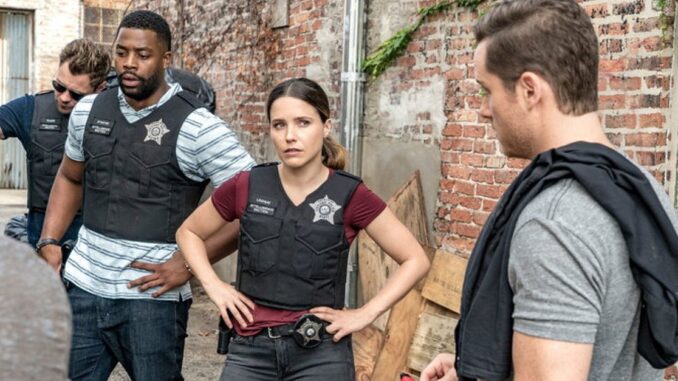
The Fallout and the Fulcrum: Voight’s Leadership Questioned After Explosive Decision in Season Finale
In the shadowed, morally grey world of police procedurals, few characters embody the “ends justify the means” ethos quite like Sergeant Hank Voight. For years, viewers and his fictional superiors alike have watched him navigate the treacherous waters of Chicago’s criminal underworld, often bending, if not outright breaking, the rules to deliver his own brand of justice. He has been the unwavering, if unsettling, anchor of his unit, his leadership defined by an almost terrifying effectiveness and an unshakeable loyalty to his team. Yet, the recent season finale, with its single, explosive decision, has not merely chipped away at the edges of his authority, but fundamentally shattered the foundation upon which his entire leadership paradigm rests, leaving its future, and indeed the future of his unit, hanging by a thread.
The decision itself was a gut punch, even for an audience accustomed to Voight’s ruthlessness. Faced with an unassailable drug kingpin, entrenched in a web of political corruption and armed with an army of lawyers, Voight chose not just to operate outside the lines, but to obliterate them entirely. In a climactic sequence, designed to be a definitive takedown, he greenlit an operation that deliberately sacrificed an innocent, if minor, player in the criminal ecosystem – a low-level informant, whose carefully cultivated trust was betrayed, his life knowingly placed in mortal danger to secure the conviction of the bigger fish. The cold, calculated nature of the trade-off, executed with Voight’s characteristic grim resolve, was shocking not for its brutality, but for its utter disregard for the individual, a stark deviation even from his own protective instincts for those he deems "his."
The immediate fallout within the unit was palpable, and perhaps the most damning indictment of Voight’s leadership. The silence in the aftermath of the successful bust was deafening, heavier than any reprimand from Internal Affairs. Detective Kevin Atwater, long the moral compass of the team, struggled visibly to reconcile the victory with the horrific cost, his usually stoic face etched with a profound disappointment that spoke volumes. Hailey Upton, once Voight’s protégé and closest ideological heir, stared at him with a mix of horror and dawning realization – the very methods she had come to adopt had, in this instance, crossed a Rubicon she herself couldn't stomach. Even Adam Ruzek, whose loyalty to Voight often bordered on blind devotion, looked away, unable to meet his sergeant’s eyes, a rare crack in their shared understanding. This was not just a procedural misstep; it was a crisis of conscience that rippled through the very bonds of trust that had held the unit together. If an innocent life could be so casually expended, who among them was truly safe from being a pawn in Voight's grim chessboard?
Beyond the immediate emotional disintegration, the decision has undeniably invited unprecedented external scrutiny. For years, Voight’s superiors tolerated his rogue tendencies because he delivered results. The city was safer, the major players were behind bars, and the headlines were clean. But the ethical breach of the finale was too egregious, too public, to simply sweep under the rug. The informant’s fate, though initially obscured, threatens to unravel, dragging the department into a media firestorm that will demand accountability. This isn’t just about a potential internal review; it’s about a fundamental questioning of the very system that allowed Voight to operate with such impunity. The implicit bargain – that his methods, however dark, served a greater good – has been broken. The explosion wasn't just a tactical maneuver; it was a detonation of the unwritten rules, leaving a crater where the department's tacit approval once lay.
In the wake of such an explosive decision, Voight’s leadership, once an unyielding force, now appears as a cracked monolith. His strength, traditionally derived from his singular vision and his team’s unwavering belief in his moral compass (however skewed), has been deeply compromised. The finale leaves viewers, and more importantly, his own detectives, questioning not just the legality or morality of his actions, but the very sustainability of his command. Can a leader whose methods demand such ultimate sacrifices from the periphery maintain the loyalty and effectiveness of his core? The season finale was not just a cliffhanger; it was a fulcrum, forcing a re-evaluation of everything Hank Voight represents, and setting the stage for a future where the grey areas may finally be exposed to the unforgiving light of day.
